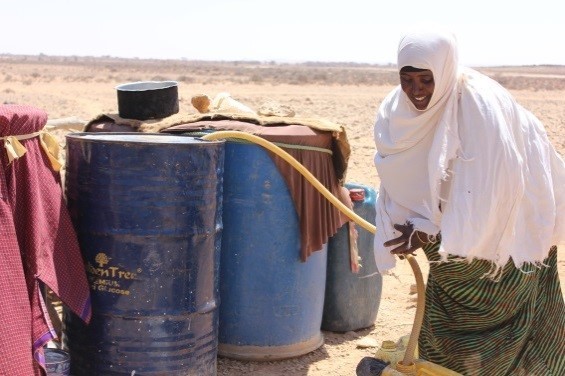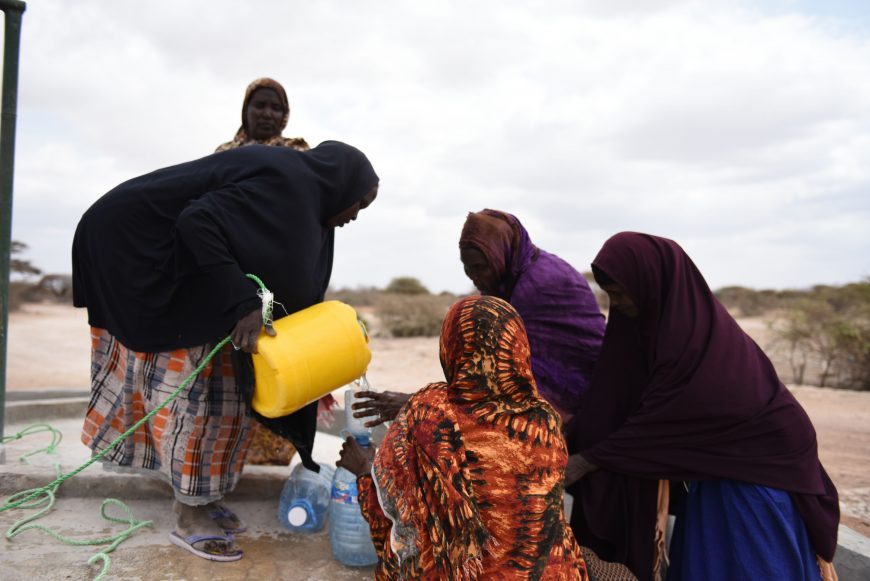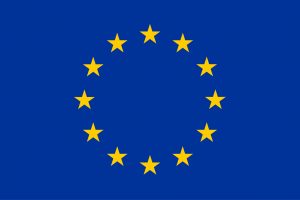As severe drought and protracted conflict went on on, the humanitarian situation in most parts of Somalia deteriorated significantly. In the aftermath of these crises, 6.2 million people – half of the total population – were reported to be in urgent need of humanitarian aid. With the STREAM consortium, ACTED invests in water infrastructure, livelihoods, community dialogue and education. Our teams build population resilience to droughts and other hazards, so that Somali people can endure future disasters.
ACTED empowers Somali people with livelihoods opportunities to increase their resilience
Droughts and years of protracted conflict severely damaged – or even destroyed – many Somali people’s livelihoods, notably those living in urban towns such as Kismayo. Many of them live on less than a dollar a day, and that means their children are poorly educated as families lack the means to pay for school costs. This can trap vulnerable families in a downward cycle of poverty: hence why ACTED teams are empowering them today to improve the region on the long term.
To break this cycle, the STREAM Consortium, Social Safety Nets project funded by European Union, builds resilience at the families’ and communities’ levels in Southern and Central Somalia. As populations gain sure sources of income, they can adapt and endure droughts and other hazards thanks to their improved access to income, which leads to strengthened and diversified livelihoods. To achieve this, many different sorts of actions are taken by ACTED and partners, for a complete response: cash transfers, skills and community trainings, business grants, cash for work projectsare one among many activities developpped in the region.They both soften the blows given by the recent crises and promote development and resilience to future disasters, working on both short term and long term needs.
Resisting droughts with improved access to water: the importance of strenghtening infrastructures
Clean and safe water is essential for life. The drought in Somalia has caused a severe water shortage leading to use of contaminated water, which, coupled with poor hygiene practices, has led to widespread outbreaks of water-borne diseases such as cholera.

ACTED/SADO is implementing WASH, livelihood support and emergency projects to provide relief for many people suffering from the devastating effects of the ongoing drought.
A member of ACTED staff, based in Kismayo, explains that activities include renovation and construction of infrastructures like water wells, feeder roads, as well as hygiene promotion activities. But ACTED/SADO also provides cash to displaced people through either cash-for-work, where beneficiaries carry out community works in exchange of a temporary salary, or through unconditional cash transfers where the most vulnerable are given cash to buy food and cater for other basic needs – including their water needs.

ACTED regularly caters to the needs of hundreds of thousands of families in camps hosting internally displaced people. The activities include water-trucking, unconditional cash transfers to support food security and livelihoods, hygiene promotion and the rehabilitation of WASH facilities such as toilets and shallow wells. It has also forged a fruitful partnership with SADO, a local NGO with a strong presence in Somalia. By joining forces, ACTED, SADO and ADESO are increasing the impact of their action.
 This publication was produced with the financial support of the European Union. Its contents are the sole responsibility of ACTED and do not necessarily reflect the views of the European Union.
This publication was produced with the financial support of the European Union. Its contents are the sole responsibility of ACTED and do not necessarily reflect the views of the European Union.